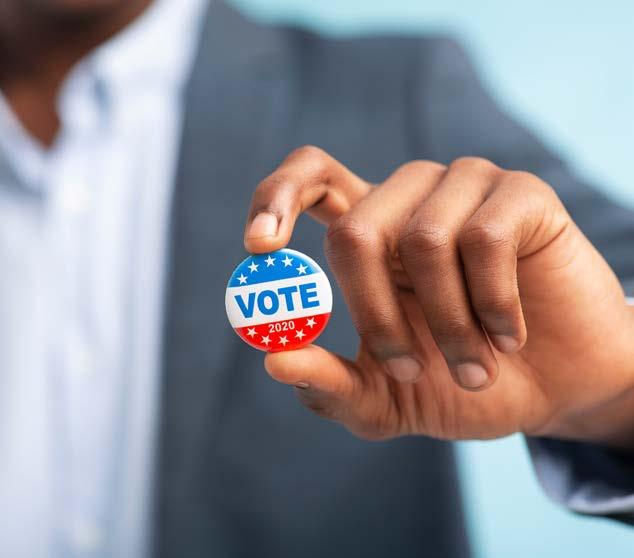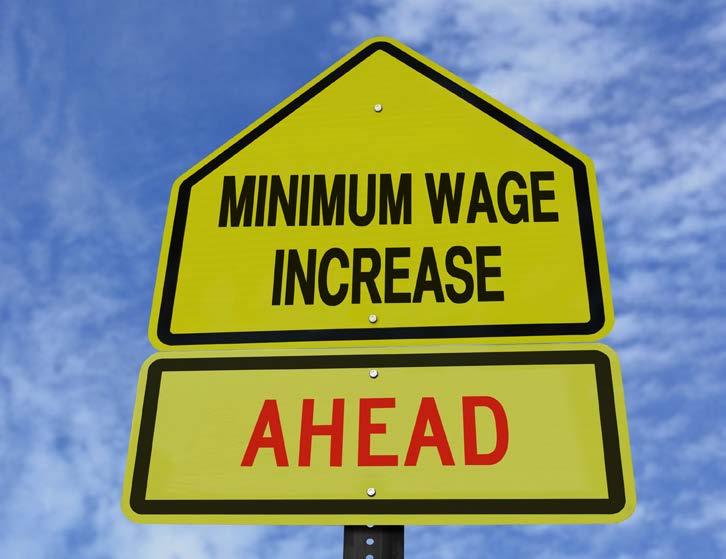
4 minute read
STATE/NATIONAL
A BRIEF LOOK AT STATE AND NATIONAL NEWS AFFECTING OUR REGION
TWO-TRACK RECOVERY ANTICIPATED FOR MICHIGAN ECONOMY
Advertisement
BY LAURA MICHELS
Economists say Michigan’s economy is expected to gradually strengthen, with some industries recovering much faster than others.
In the early months of the pandemic, more than 1 million jobs were gutted from the state’s payrolls, according to Bruce Weaver, economic manager at the Michigan Department of Technology Management and Budget.
As of July, Michigan was still down 520,000 jobs compared to pre-pandemic levels.
“That’s a drop (in jobs) of about 11.7% from February to July, but it also means that the state has recovered about half the jobs that we lost in March and April,” said Weaver.
COVID-19 walloped the leisure and hospitality industry especially hard. It has recovered about 35% of its lost jobs, whereas other sectors — including construction, manufacturing and trade, transportation, and utilities — have recovered more than 60% of the slashed positions, said Weaver.
To that end, economists anticipate a two-track economic recovery.
“Certain sectors are going to be able to recover faster than others,” said Michael McWilliams, the Michigan forecasting specialist at the University of Michigan.
Industries on the fast track include durable goods, manufacturing and construction. Leisure, hospitality and retail trade sectors are included in the slower track, said McWilliams.
By the end of 2022, slow recovery industries are expected to come up short by more than 100,000 jobs while those on the fast track are forecasted to be 8,000 jobs above their pre-pandemic levels, with some industries rebounding even faster,” said McWilliams.
“We’ve had a really, really solid recovery until now,” he said.

WHAT TO KNOW ABOUT VOTING IN NOVEMBER
BY TEECE ARONIN
COVID-19 has caused voters and voting officials to rethink election procedures for the November general election. The viability of maintaining recommended health and safety measures, including social distancing, has many concerned. “Our top priority moving into November is ensuring Michiganders understand their rights and feel comfortable exercising them,” said Tracy Wimmer, spokesperson for the Michigan Department of State. “There are numerous ways to cast your ballot — absentee by mail, via drop box, in person at your clerk or at the polls on Election Day — and no matter how you choose to do it, voters can feel confident that our election will be on time, and it will be safe, accessible and secure.”
In response to an earlier request for comment, the secretary of state replied that Michigan law now allows residents to “apply to vote by mail via an absentee ballot without declaring a reason.” Those interested in voting absentee in the general election must submit applications prior to Oct. 30.
To download and/or submit an absentee ballot application or to locate your polling location, go to Michigan.gov/Vote.
Voters wishing to be added to the permanent absentee-voter list and have voting applications sent to them by mail for all upcoming elections should visit the “update voter information” page at the Michigan Voter Information Center website. Choosing that option does not mean voters cannot vote in person in the future.
Polls will be open from 7 a.m. to 8 p.m. Nov. 3 for inperson voting.

HOW A MINIMUM WAGE INCREASE COULD IMPACT RESTAURANTS
BY ALLISON SPOONER
Legislation that would increase the federal minimum wage to $15 by 2025 has already received approval in U.S. House of Representatives, and November’s general election could significantly impact whether or not that bill advances; however, what such a measure would mean to the economy remains to be seen.
According to a Pew Research Center survey conducted last year, twothirds of Americans support the legislation. While advocates push for the raise to meet the higher cost of living, others are worried the restaurant industry wouldn’t survive the change.
Some economists warn that restaurants would not be able to absorb the labor costs, and a new study from the nonpartisan Congressional Budget Office found the increase could eliminate about 1.3 million jobs by 2025.
The federal law applies if the state does not have its own minimum wage law, and many states are already raising their minimum wage. States that have already instituted the raise can be viewed as a test of what the federal change would mean.
“The research from Seattle’s increase seems to suggest that the impact on restaurants is two-fold: They either raised their prices or cut back on employee hours, but in neither case were those changes as large or as negative as some predicted,” said Bob Cunningham, chair of the economics department at Alma College. “There was no decrease of employment in the industry.”
John McNamara, vice president of government affairs at the Michigan Restaurant and Lodging Association sees the hike as inevitable.
“The minimum wage in Michigan went up this year and will continue to rise over the next several years,” he said. “Doing anything to interrupt these predictable and consistent changes would be detrimental now and in a post-COVID world.”






